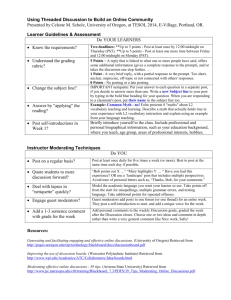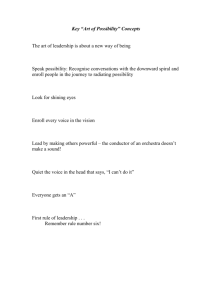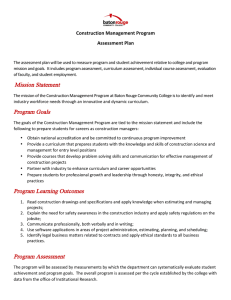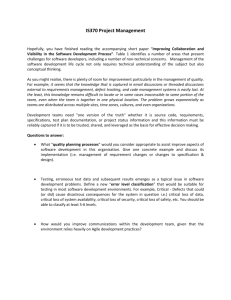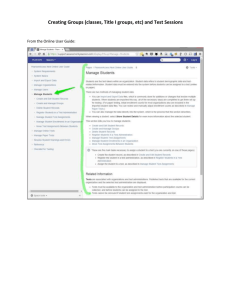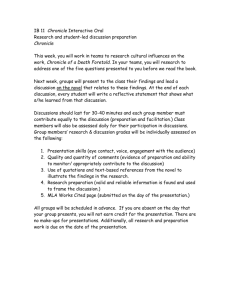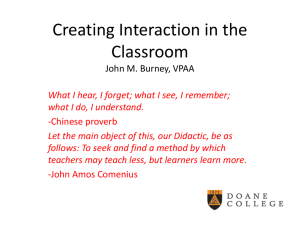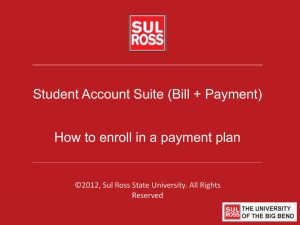Issues of Best Practice in Post
advertisement
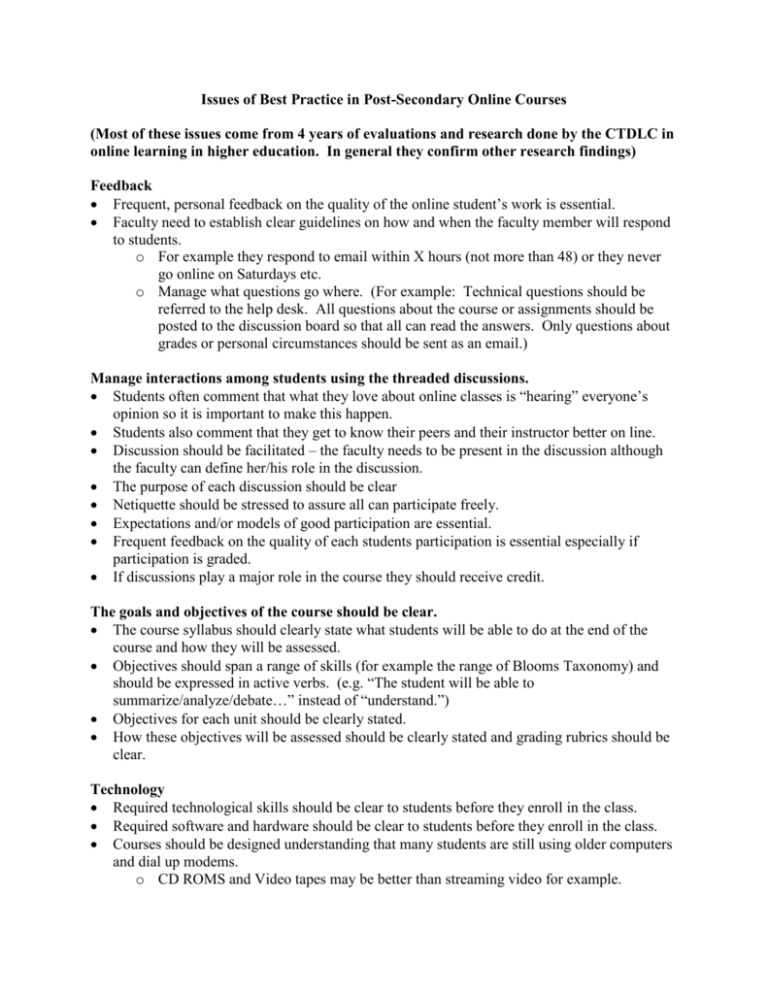
Issues of Best Practice in Post-Secondary Online Courses (Most of these issues come from 4 years of evaluations and research done by the CTDLC in online learning in higher education. In general they confirm other research findings) Feedback Frequent, personal feedback on the quality of the online student’s work is essential. Faculty need to establish clear guidelines on how and when the faculty member will respond to students. o For example they respond to email within X hours (not more than 48) or they never go online on Saturdays etc. o Manage what questions go where. (For example: Technical questions should be referred to the help desk. All questions about the course or assignments should be posted to the discussion board so that all can read the answers. Only questions about grades or personal circumstances should be sent as an email.) Manage interactions among students using the threaded discussions. Students often comment that what they love about online classes is “hearing” everyone’s opinion so it is important to make this happen. Students also comment that they get to know their peers and their instructor better on line. Discussion should be facilitated – the faculty needs to be present in the discussion although the faculty can define her/his role in the discussion. The purpose of each discussion should be clear Netiquette should be stressed to assure all can participate freely. Expectations and/or models of good participation are essential. Frequent feedback on the quality of each students participation is essential especially if participation is graded. If discussions play a major role in the course they should receive credit. The goals and objectives of the course should be clear. The course syllabus should clearly state what students will be able to do at the end of the course and how they will be assessed. Objectives should span a range of skills (for example the range of Blooms Taxonomy) and should be expressed in active verbs. (e.g. “The student will be able to summarize/analyze/debate…” instead of “understand.”) Objectives for each unit should be clearly stated. How these objectives will be assessed should be clearly stated and grading rubrics should be clear. Technology Required technological skills should be clear to students before they enroll in the class. Required software and hardware should be clear to students before they enroll in the class. Courses should be designed understanding that many students are still using older computers and dial up modems. o CD ROMS and Video tapes may be better than streaming video for example. Students and faculty should have a plan to deal with technology failure. Students should know who to contact for help.
